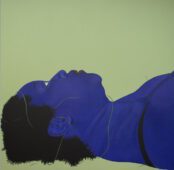[dropcap style=”font-size:100px; color:#992211;”]I[/dropcap]n a previous essay, screenwriter Radik Kagirov developed the notion that, in order to write a compelling, engaging, gripping plot for a film (or equally, a novel, short story, play or TV series) we must engage the three limbic zones of the human brain.
Those zones correspond with stages of evolutionary development on our journey to become the humans we are today, and can be categorised as reptilian, mammalian and higher primate. In Kagirov’s schematic, we are prompted to emotion and reaction by the processes of our inner crocodile, rabbit and monkey. Each has its own prompt-points, each has its own domain of responsibility. Writing compelling narrative demands that each is satisfied. Previously, the demands of reptilian and mammalian brains were identified. What remains is to chart the stimuli which provoke reactions in the higher primate, monkey brain.
What interests the monkey? Relations and communications – who colludes with whom, and so on. Its most lively issue is that of status and rank in the group: who is more important, who subordinates whom. In a complicating, but inevitable development, sexual passions are also entwined with status successions.
Recently, researchers from Duke University Medical Center conducted an interesting experiment showing that monkeys differentially value the opportunity to acquire visual information about particular classes of social images.
Male rhesus macaques sacrificed a reward for the opportunity to view female apes’ “erotic” zones (female perinea) as well as the faces of local “politicians” (high-status monkeys). In contrast, the subjects required reward overpayment to view the faces of low-status monkeys.
In primate societies kinship, dominance and reproductive status regulate social interactions and therefore systematically influence the value of social information. And monkeys spontaneously discriminate towards images of others based on social status.
Does that sound familiar? Furthermore, there was some research undertaken in which the monkeys looked at videos with erotic scenes. They watched with great interest. The males, at the sight of sexually active females, underwent elevations of their testosterone levels. Incidentally, even in human medical practice, doctors often give such a prescription – to watch adult films – if a patient has testosterone deficiency. Some specialists assert that such an approach boosts testosterone levels as effectively as hormone therapy drugs. Rutgers University sex researcher and biological anthropologist Helen Fisher suggests that showing porn “drives up dopamine levels, which drives up your testosterone.”
Sex, gossip and politics then, prove the holy trinity of screenwriting subjects in the ever-more complex recipe for engaging the tripartite limbic neuro-zoo in the viewer’s brain.
But we’re not surprised by that, are we?
Image by Pixabay/PDPics






















